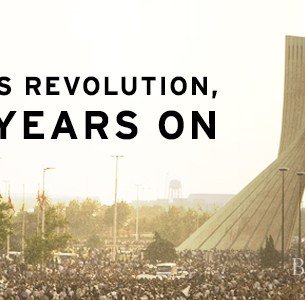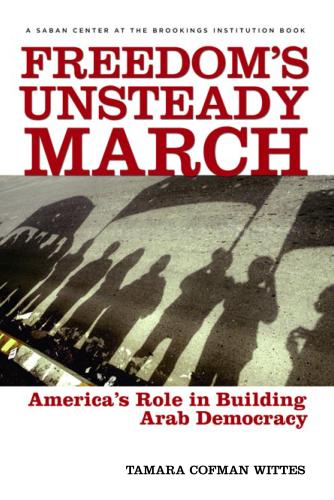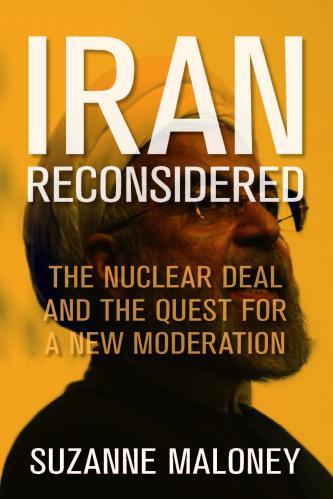The Islamic Revolution of February 1979 kicked off a polarized debate within the United States over President Carter’s human rights policy and, more broadly, over how concerned American foreign policy should be with human rights and democracy promotion. In many ways, we have been having this debate ever since.
Carter was the first modern president to elevate human rights within U.S. foreign policy, establishing a new Bureau of Human Rights and Humanitarian Affairs in the State Department and appointing his deputy campaign chair, Patricia Derian, as the first assistant secretary of state dedicated to human rights. The emphasis on moral principles in U.S. foreign policy grew from Carter’s own political ideology, and also the desire for a stark contrast to the Nixon administration’s corruption, scandals, and amoral realism.
But the Iranian revolution was a devastating blow to this approach. In November of 1979, a political science professor and anti-Communist activist named Jeane Kirkpatrick published an article in a conservative monthly that began thus: “The failure of the Carter administration’s foreign policy is now clear to everyone except its architects.” The article blasted President Carter for his handling of the Iranian revolution earlier that year, saying that both there and in Nicaragua he “actively collaborated in the replacement of moderate autocrats friendly to American interests with less friendly autocrats of extremist persuasion.” To Kirkpatrick, Carter’s pressure on the shah to reform had encouraged the revolution, and his failure to support a friendly monarch facing a violent, communist-linked opposition had worsened the situation in Iran both for human rights and for American national interests.
Published just as the Iranian revolutionaries seized the U.S. embassy and took American diplomats hostage for what turned into 444 days of captivity, the article’s critique of Carter’s Iran policy seemed prescient. Jeane Kirkpatrick’s “Dictatorships and Double Standards” probably did more than any other piece of writing to structure the way foreign policy elites came to view the Iranian revolution, and how they debate, even today, the proper place of democracy and human rights in American foreign policy—especially in relations with autocratic allies.
For the conservatives who embraced Kirkpatrick’s argument (and embraced Kirkpatrick herself, who won a cabinet post in the Reagan administration as U.S. ambassador to the United Nations), President Carter’s criticism of and readiness to condition ties to friendly autocrats on human rights grounds was both naive and counterproductive. They argued that pressuring friends weakened their ability to serve as bulwarks against the spread of communist influence, and also sent a message of American unreliability to other allies around the world. The priority in U.S. foreign policy must be the fight against Communism (and later, radical Islamism), the argument went—and thus rights abuses by friends should be overlooked for the sake of the larger cause.
The most enduring and perhaps the most powerful component of Kirkpatrick’s argument has been the notion that pressuring autocratic allies on human rights does not advance democracy, but only enables the rise of anti-American and often radical successor regimes. The loss of the shah as a U.S. partner in the Persian Gulf was widely understood as a major strategic defeat, at a key moment in the Cold War—and the humiliation of the hostage crisis only underscored this judgment.
 This scenario, by which U.S. rights advocacy leads to the overthrow of friendly dictators by anti-American successors, has become the nightmare with which rights advocates both inside and outside government have had to contend ever since the fall of the shah. And the wide embrace of this view within foreign policy circles has led autocratic allies to treat American support a game of blackmail—whereby the fear of what might come next often deters American presidents from embracing change in friendly dictatorships, even when that change is peaceful. This view, for example, heavily colored the George H.W. Bush administration’s response to the Algerian elections in 1991. When Islamists won the first round of elections and the military shut down the process to avoid their outright victory, it kicked off a civil war that lasted 10 years and cost as many as 150,000 lives. Yet Bush, along with most other Western leaders, supported the military’s short-circuiting of the democratic process. I discuss the lingering effects of this choice on U.S. democracy promotion in my 2008 book, “Freedom’s Unsteady March: America’s Role in Building Arab Democracy.”
This scenario, by which U.S. rights advocacy leads to the overthrow of friendly dictators by anti-American successors, has become the nightmare with which rights advocates both inside and outside government have had to contend ever since the fall of the shah. And the wide embrace of this view within foreign policy circles has led autocratic allies to treat American support a game of blackmail—whereby the fear of what might come next often deters American presidents from embracing change in friendly dictatorships, even when that change is peaceful. This view, for example, heavily colored the George H.W. Bush administration’s response to the Algerian elections in 1991. When Islamists won the first round of elections and the military shut down the process to avoid their outright victory, it kicked off a civil war that lasted 10 years and cost as many as 150,000 lives. Yet Bush, along with most other Western leaders, supported the military’s short-circuiting of the democratic process. I discuss the lingering effects of this choice on U.S. democracy promotion in my 2008 book, “Freedom’s Unsteady March: America’s Role in Building Arab Democracy.”
Ironically, it was the very administration that first and most powerfully embraced Kirkpatrick’s ideas that proved this nightmare scenario was not inevitable, and that it was possible to advance American ideals without sacrificing American interests. As pro-American dictators in Chile, the Philippines, and South Korea began to face growing internal dissent, key officials within the Reagan administration argued for a different approach than uncritical support for autocratic allies. Through quiet dialogue with local opposition movements, these officials came to see the possibility of successor regimes that were democratic and also open to working with the United States. They ultimately persuaded the secretary of state and the president to send strong messages to these friendly dictators warning against violent suppression of the opposition movements—and at a crucial moment in Manila, President Reagan directly facilitated Ferdinand Marcos’s exit from power. In all three cases, the United States proved able to stand up for human rights and democracy, and ultimately embrace regime change in a friendly country, while maintaining a working partnership throughout.
The cases of Chile, South Korea, and the Philippines, along with a few others, are often cited today by foreign policy elites arguing that American human rights advocacy needn’t come at the expense of American interests. And yet, as we can see in today’s harsh Monday-morning quarterbacking of Obama’s policy toward the Egyptian uprising against Mubarak, for example, this argument still faces a steep uphill climb.
It is notable that, 40 years later, the trauma felt in Washington over the fall of the shah still weighs more heavily on foreign policy debates than the triumph of our lasting partnership with a democratic South Korea. Perhaps this anniversary is an opportunity to re-examine the record of U.S. relations with autocratic allies and begin to rewrite the narrative.









Commentary
Iran’s revolution and the problem of autocratic allies
January 24, 2019